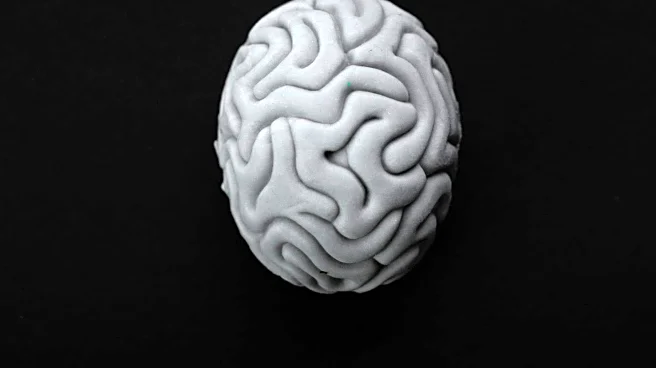What is the story about?
What's Happening?
A recent study published in Scientific Reports has revealed that creatine, a supplement commonly associated with muscle building, can significantly improve cognitive function and mood in individuals experiencing sleep deprivation. The research, conducted by a German team, involved keeping participants awake for 21 hours. Half of the participants received a placebo, while the other half were given a substantial dose of creatine, specifically 0.35 grams per kilogram of body weight. The results showed that those who consumed creatine performed better on memory, logic, and reaction-time tests compared to the placebo group. Additionally, MRI spectroscopy indicated that the creatine group experienced less of the typical 'low-energy fog' associated with lack of sleep.
Why It's Important?
This study highlights the potential of creatine as a cognitive enhancer, particularly in situations of extreme fatigue. Traditionally known for its benefits in strength sports, creatine's ability to support brain function under stress could have significant implications for various groups, including shift workers, new parents, and students. The findings challenge previous assumptions that creatine's cognitive benefits required prolonged loading periods, suggesting instead that a single high dose can be effective. This could lead to broader acceptance and use of creatine beyond athletic circles, potentially benefiting those in high-stress, sleep-deprived environments.
What's Next?
The study's findings may prompt further research into creatine's cognitive benefits and its application in different contexts. As awareness grows, there could be increased interest from industries and individuals seeking to enhance mental performance under stress. Additionally, the supplement industry might see a rise in demand for creatine products marketed for cognitive enhancement. Regulatory bodies may also take interest in these findings, potentially influencing guidelines and recommendations for creatine use.
Beyond the Headlines
The study underscores a shift in understanding the multifaceted benefits of supplements traditionally associated with physical performance. It raises questions about the broader applications of such supplements in mental health and cognitive performance. This could lead to a reevaluation of how supplements are marketed and perceived, potentially bridging the gap between physical and mental health support.
















